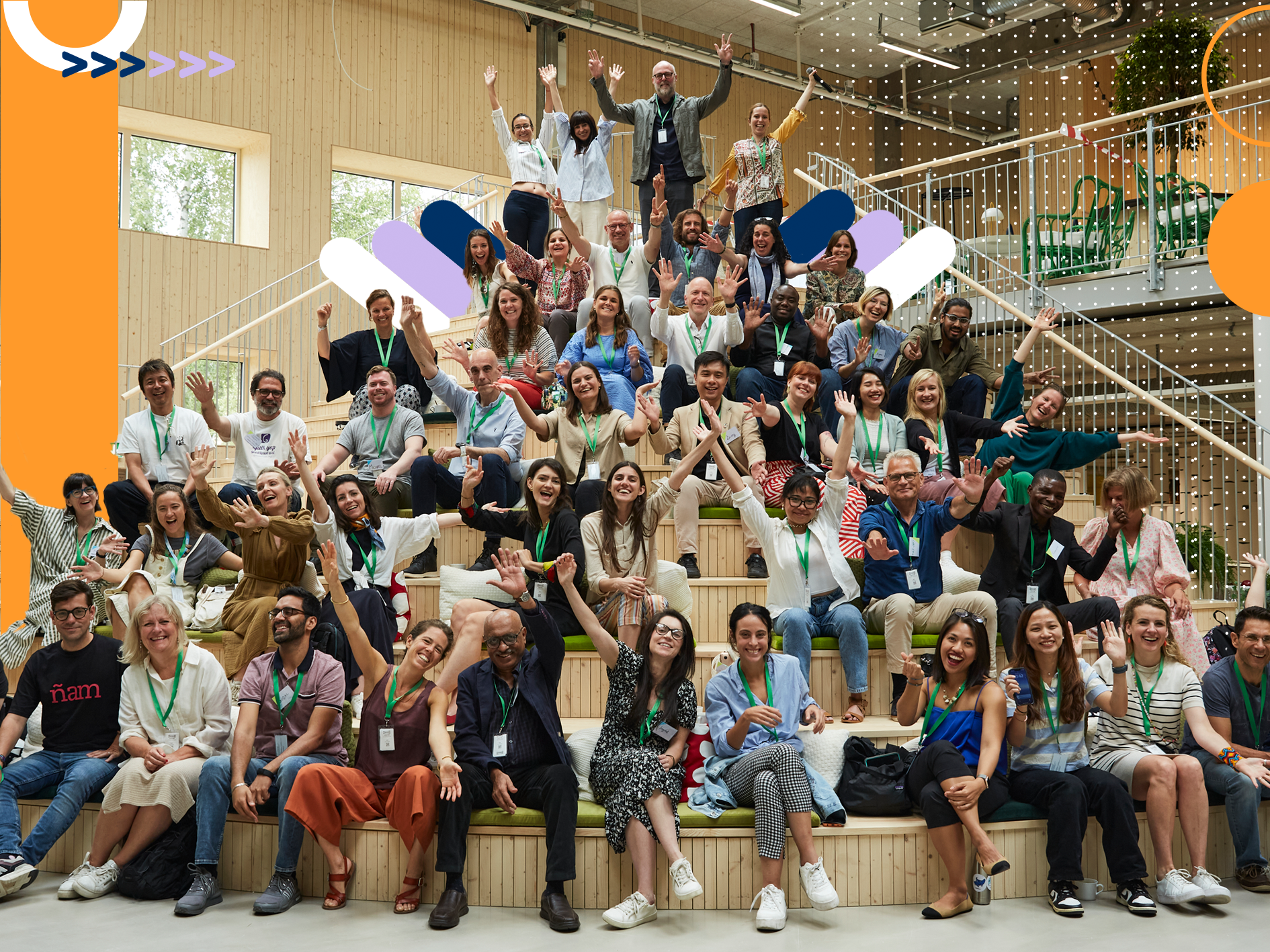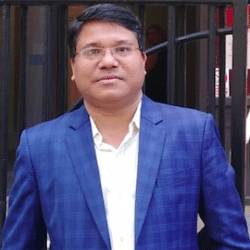Transforming innovation through systemic thinking and corporate-social collaboration
Today, as we launch the fifth edition of the Dela systems change programme, we share key insights from the Dela programme's enduring impact on its over 200 participating experts from the global social innovation and corporate sectors.

Dela, a Swedish word that means ‘to share’, came about five years ago as a global accelerator programme with the goal of supporting leading social entrepreneurs in their quest to strengthen their impact-scaling strategies and test elements of them in practice. In parallel, selected experts from the corporate sector get the chance to gain new access and insights within the field of social innovation.
According to the last published Dela report, the experience and professional knowledge obtained in the accelerator have impacted both their personal and professional growth. IKEA co-workers highlight their increased awareness and understanding of the ways they can contribute to positive social impact.
This collaboration between social entrepreneurs and IKEA co-workers has now resulted after the five-year partnership between Ashoka and IKEA Social Entrepreneurship, which has led to the intersection of the corporate and social entrepreneurship sectors within (and even beyond) an accelerator.
The Dela programme consists of three main phases: Strategy, Scoping and Experimentation. During the Strategy phase, social entrepreneurs and IKEA coworkers analyze the problem they are tackling, identify the intended systems change and develop a roadmap and the organizational next steps to achieve it.
Once the teams join the Scoping and Experimentation phases, they are joined by additional IKEA co-workers who provide hands-on and skills-based support.
After a comprehensive series of conversations with participating Ashoka Fellows and IKEA co-workers, a recently published Dela report showcases the progress achieved and mid-run impact of Dela participants in their work and life contexts. Outstanding achievements linked to the work developed throughout the accelerator apply from law change to collaboration with governments as social entrepreneurs apply a systemic thinking while deepening their understanding of the systems they work in.
Read on to discover the impact achieved by two of the over 45 social entrepreneurs who have already participated in the systems change accelerator.
From directly serving people with disabilities to fostering inclusion through proactive government influence
Access Bangladesh Foundation addresses the difficulties for people with disabilities in Bangladesh to get employed, through employment placement programs.
One of the many impacts identified by Ashoka Fellow Albert Mollah and his team’s organization is that this results in social exclusion, with an estimated annual loss of 1.74% of the GDP in the country.
During his participation in the Dela programme, Albert found a key lever to inform policies programs, and budget allocation and achieve more and better inclusion for persons with disabilities – through collecting accurate data via a comprehensive disability survey.
During the Scoping and Experimentation phases of the programme, Access Bangladesh Foundation and his co-workers’ team worked together to ensure data of people with disabilities is accurately reflected, incorporating disability-related questions in the census questionnaire, in line with the Rights and Protection of Persons with disabilities Act 2013, while also developing training modules.
Albert has now convinced the Bangladesh Government to ensure data of people with disabilities is accurately reflected when the census is conducted. They have also provided trainings and technical support to its staff.
From building houses to addressing the unaffordable housing market and its crisis in the United States
A home's median sales price is $416,100, which results in a shortage of 7 million affordable housing units. On the other hand, two million low-income American families live in mobile homes that are below the standard environmental and structural requirements for factory-built housing. Ashoka Fellow Stacey Epperson is the founder of Next Step, an organization addressing the challenge of unaffordable housing in the United States by making manufactured housing a practical, sustainable solution for the housing affordability crisis.
During the Dela programme, Next Step shifted its focus from increasing the number of houses built yearly to transforming the supply and demand of the factory-built housing market.
Advocacy and policy change became their key action as they managed to improve a market of more than 100,000 homes annually. They pushed for energy code policy changes, zoning equity, and improving and increasing secondary market loan purchases, prioritizing the shift of buyer perceptions regarding factory-built homes through awareness campaigns and educational tools. They also expanded their scope to include for-profit developers in addition to non-profits and explored social franchise or open-source models for non-profits.
Currently, Stacey and her team are actively influencing different policies that impact the housing field in the United States such as the zoning innovation policies, the zero–energy ready homes policies, as well influencing the mortgage market. Additionally, she has joined the government’s Duty to Serve taskforce, influencing the manufactured housing finance market. Watch the video and get inspired:
Fostering a culture of innovation and social impact
In addition, co-workers report that the program provided them with a unique opportunity to leverage their expertise and networks to support social entrepreneurs across different fields. The experience was surprising and eye-opening, making them realize the value of their skills beyond their roles in IKEA.
Read this article by one of the Dela participating co-workers: Have you ever felt like a square peg trying to fit into a round hole?
Through Dela, they have not only contributed to social change but have also gained valuable insights into the broader applicability of their knowledge and skills.
This synergetic relationship highlights the potential of integrating social entrepreneurship within corporate structures, fostering a culture of innovation and social impact.
As we continue this collaboration, the mutual benefits and learning opportunities emphasize the critical role such programs play in driving systemic change and reinforcing corporate social responsibility.
Meet the new participants of the fifth edition of Dela programme here, and stay up to date with the latest news and insights from this new edition of the accelerator.


